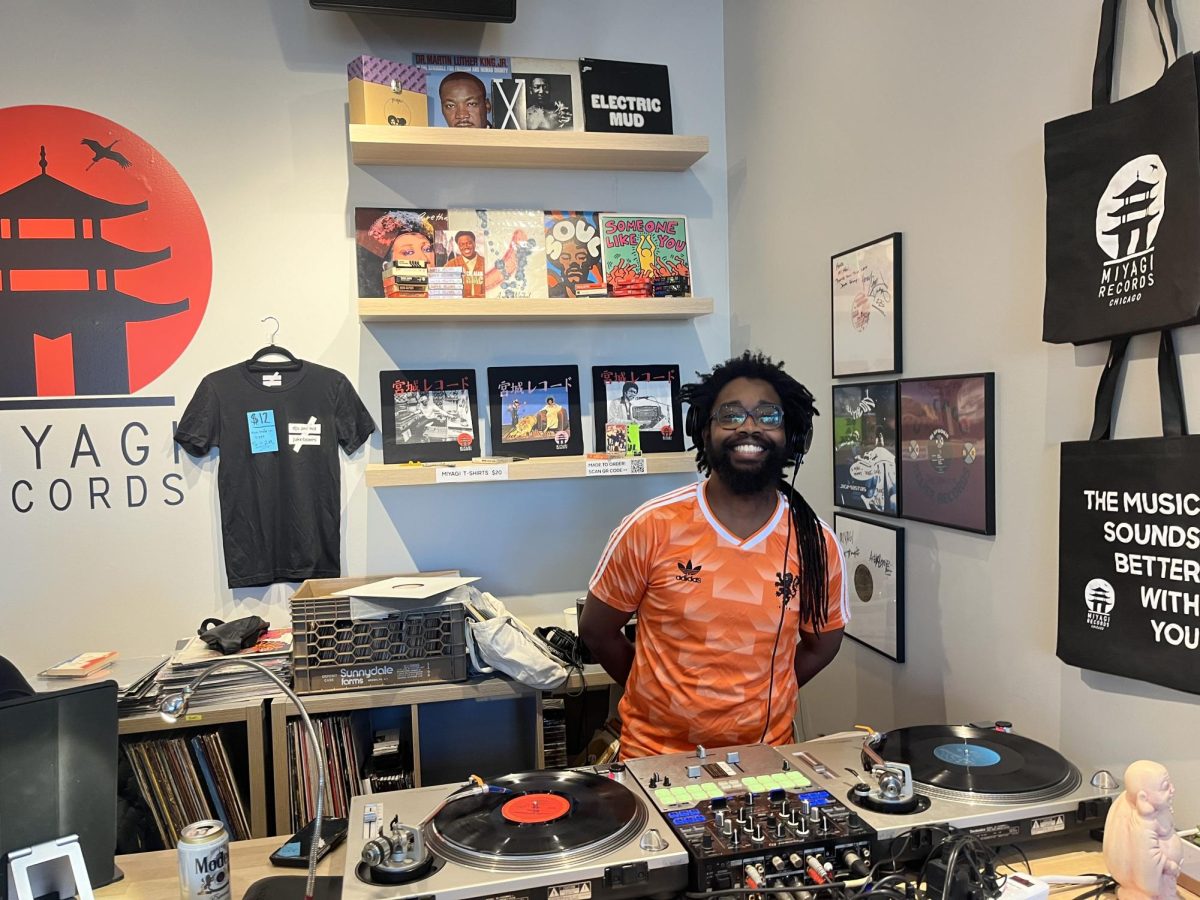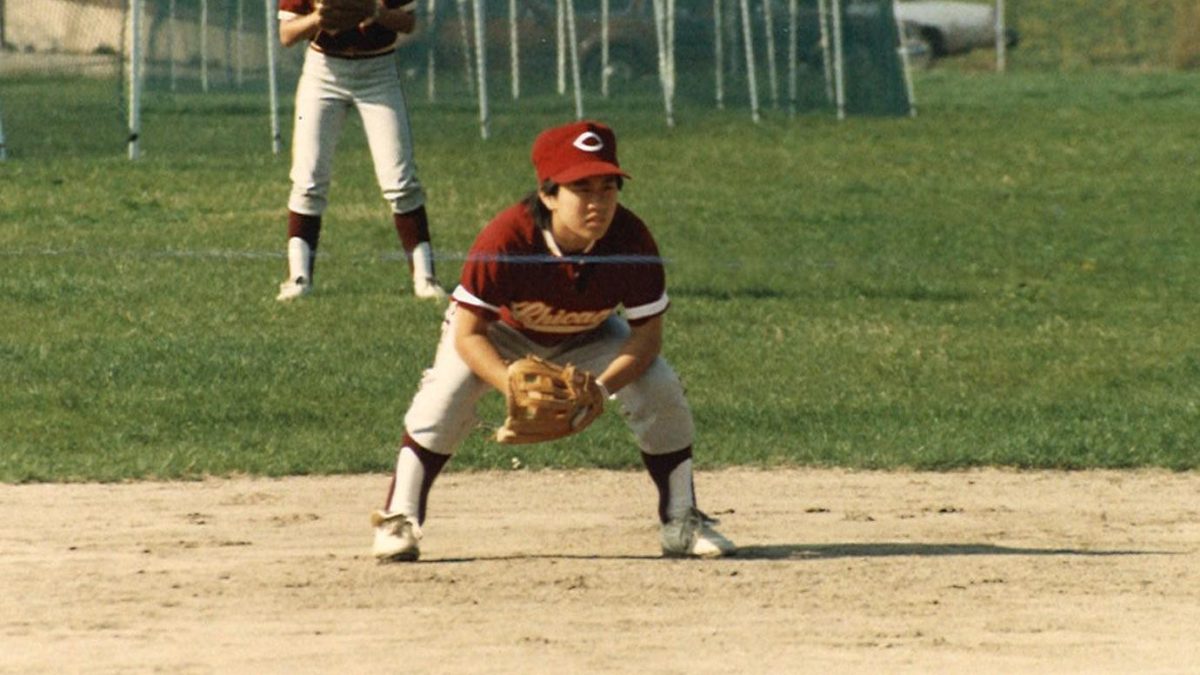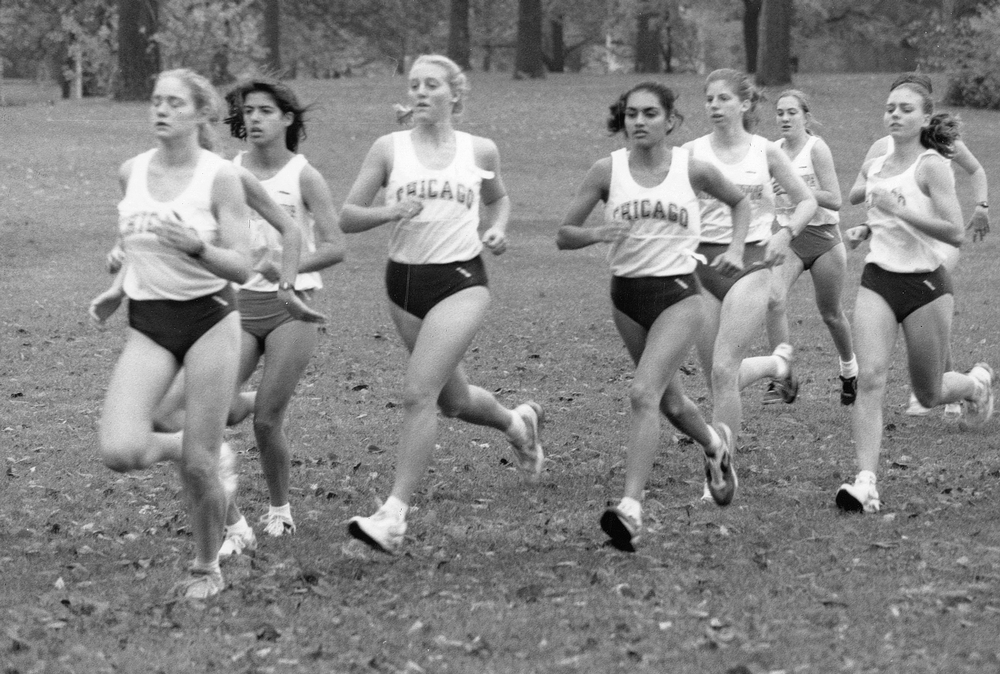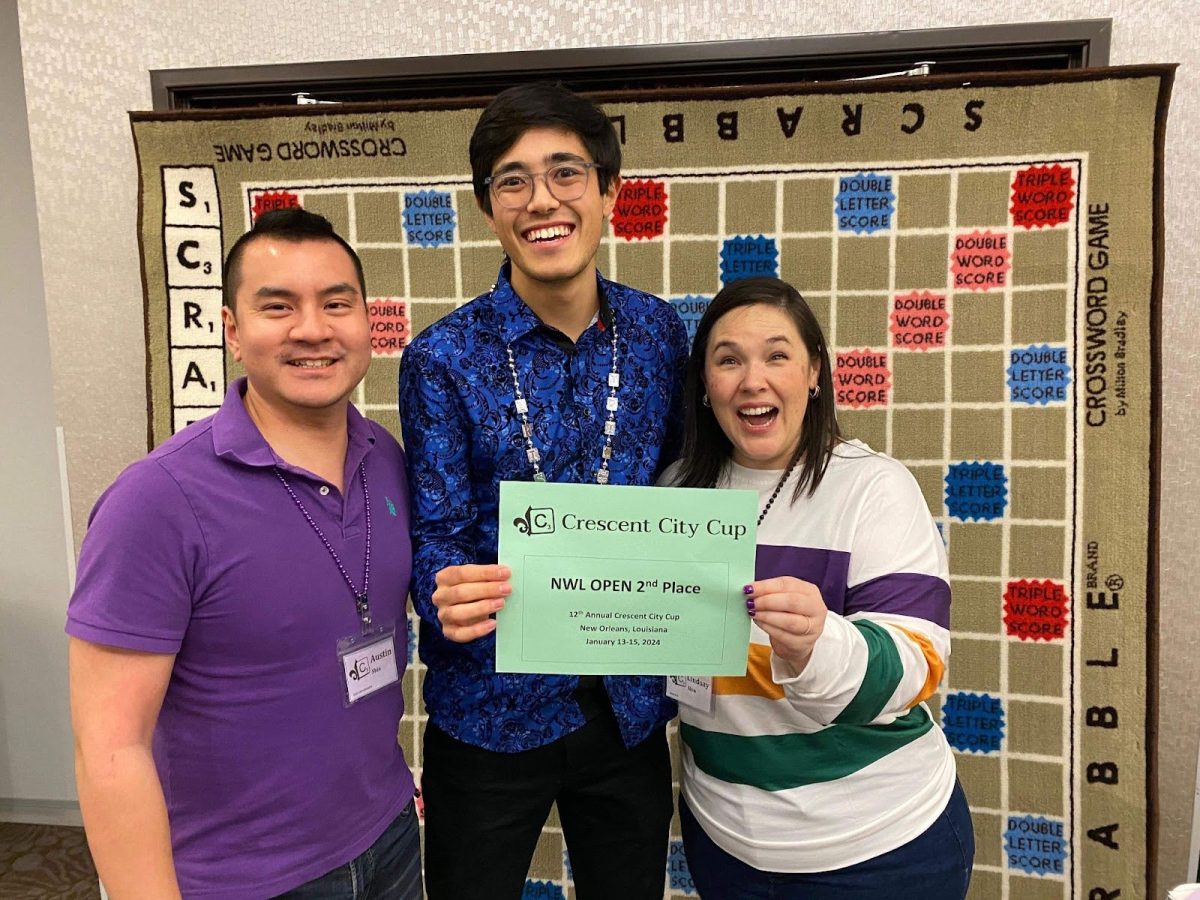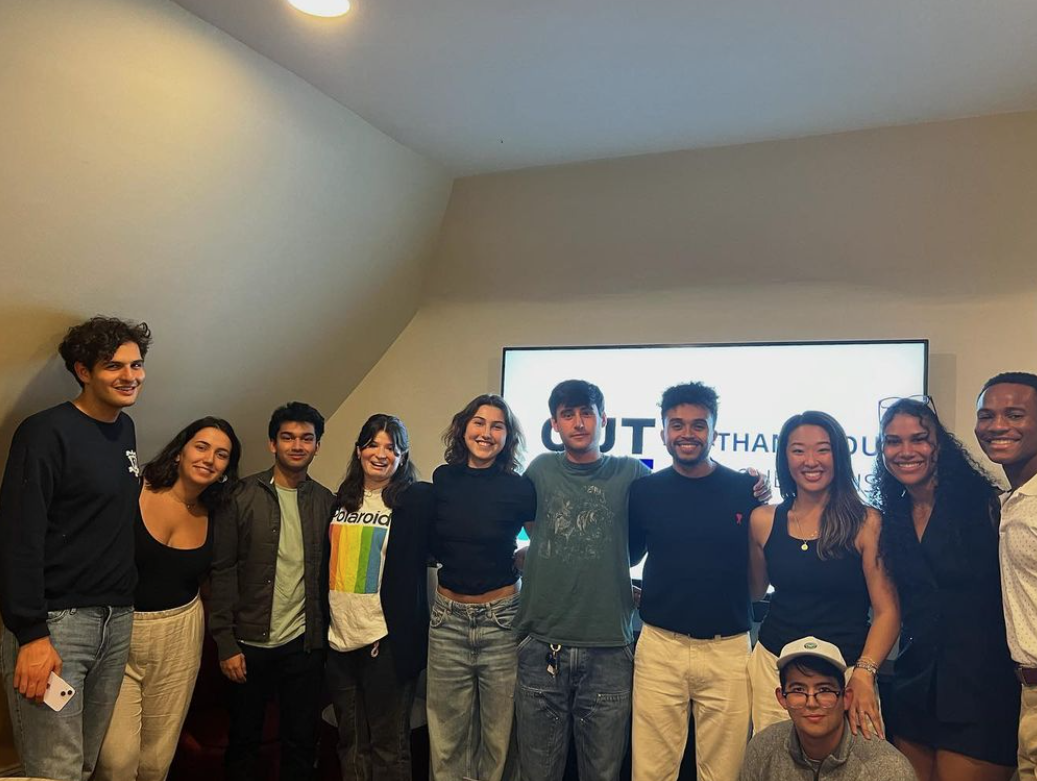Good basketball teams, like Rome, aren’t built in a day. Behind every bit of progress, there are hours of practice—late nights in the gym shooting free throws and early mornings running sprints before breakfast. But that wasn’t apparent for Chicago on January 8, 2005—the night the Maroons left the UAA cellar for good, dead-bolting the door behind them.
The play was called “Loop,” and in its setup and execution, it was not unlike any of the multitude of sets Chicago runs: a cut, a screen, and a quick decision from the ballhandler. There was no trickery, no triple screens, no alley-oop lob. Just a jump shot and, should the basketball gods so will it, a chance at the biggest upset in program history.
Trailing fifth-ranked Wash U by two with 12 seconds to play, the Maroons emerged from the huddle with the throbbing glare of history—and the scoreboard—beating down upon them. Thirty-one times the Maroons had taken the court against their rivals since 1989. Thirty-one times they had walked away disappointed, and it usually wasn’t even close. Why should this time be any different?
Second-year shooting guard Korry Schwanz inbounded from the sideline to third-year point guard Janae Winner outside the three-point arc. Eleven seconds. Checking down low to see if the low-post option was open—it wasn’t—Winner held the ball a little longer. Ten seconds.
Dynasties and doormats alike are built around consistency, and in the 16 years since Chicago took home its sole UAA title in 1989, the Maroons and Bears had represented both ends of that spectrum quite admirably. During that stretch, Wash U took home four national titles and made six trips to the Final Four while the Maroons navigated the narrow passage between mediocrity and futility with the tact and guile of Ferdinand Magellan, finishing the year with a winning conference record only three times and embracing their serfdom in a top-heavy conference.
Displaying their usual, machine-like efficiency in front of the Ratner crowd, the Bears had built up a 14-point lead at intermission—normally a stepping stone to a rout. Instead, the home side threw a Foreman-esque right hook into the plans of its opponents with an 18–3 run from the bell and never let the game get out of reach the rest of the way. History, though, is a painful thing to overcome, and a late Wash U three had seemingly put the finishing touches on win number 32.
Coming off of a perfectly set screen from first-year Nicaya Rapier, Schwanz received the pass from Winner at the far elbow. Eight seconds. With her defender out of the play and the help slow in arriving, Schwanz squared for the shot.
She had honed her stroke for hours upon hours on the backyard hoop of her Menominee, MI home and in the high school gymnasium across the street, where her father, the coach of the men’s team there, would rebound as she heaved up jumper after jumper. Some days she’d stay late in the evening, taking her free throws in sets of 100. If she made 90, it was time to go home—anything less meant another set.
The shot rose over the Wash U defense and fell in a perfect arc, dropping through the net with the familiar flourish of leather on twine. Tie game.
After that, everything else just fell into place. Jumping out to a lead early in overtime, the Maroons never looked back and pulled out the upset 70–67. The squad wouldn’t lose again for three weeks. Chicago’s meteoric—if brief—rise to the summit of the national rankings this past winter, its string of winning seasons, its sky-high expectations for next season—they all began that chilly night at Ratner two years ago. For Korry Schwanz, it marked a turning point of a different sort.
Joining the team as a first-year in the fall of 2003, the guard had been a revelation in her first season in Hyde Park, earning UAA Rookie of the Year honors while leading the team in scoring, assists, three-point field goals, and minutes logged. Inserted into the starting lineup almost immediately by then–head coach Jennifer Kroll, Schwanz spent her first year at point guard, the position she had played all through high school.
With the sudden departure of Kroll just weeks before her sophomore season was set to tip off, the team found itself in the hands of an untested coach—Aaron Roussell—with plans for a major stylistic shakeup. The squad adopted the triangle offense made famous by Michael Jordan’s Chicago Bulls and, just as importantly, flipped Schwanz’s and Winner’s positions. Winner would serve as field general, while Schwanz moved to shooting guard.
More than anything, the conference-opening win over Wash U gave the program—and Schwanz—the confidence boost to verify the talent they knew they had. Going into the game, even her own mother was less than confident in her chances.
“I’m pretty sure we were the only people who thought we could win that game,” Schwanz said. “My mom loved to make ribs for us—it was kind of our reward. Before the Wash U game she said to us, ‘If you beat Wash U, I’ll make you ribs,’ and that was the first rib dinner we had. She later on told me that she never thought we were going to win, so that’s why she had promised that.”
In addition to the free entrée, the upset of the Bears demonstrated that the move, more than just upping the future captain’s scoring average, was the right move for the team. At the second backcourt spot, Schwanz still had some liberty to run plays on her own, and the triangle offense afforded plenty of room for a skilled ballhandler to improvise in the flow of the game. By the end of the year, the result was clear in the stat line: Schwanz upped her scoring average to 13.2 ppg while improving her field goal percentage and finishing with more assists than she did in her first year as well.
The next season was more of the same for Schwanz. Although the squad fizzled after a 10–0 start, the emergence of then–second-year Nofi Mojidi lessened the scoring burden and allowed the other areas of her game to take flight. She continued to refine her dribble-penetration and added the mid-range jump shot to her arsenal, making her offensive game all the more lethal and opening up the offense.
By the time her senior year rolled around, Schwanz and the Maroons were riding the momentum of a successful offseason trip to Italy and, with an influx of young talent, looked set to finally leave their stamp on the UAA. A 16–0 start capped off a gradual ascent in the national rankings, culminating with the program’s highest-ever poll positions—first in the coach’s poll and fourth in the d3hoops.com ranking.
A return to the postseason for the first time since 1995 seemed all but assured. But then the bottom fell out. The squad dropped seven of its final nine UAA contests and plummeted out of the national rankings and NCAA consideration. When the final selections were announced, the Maroons were on the outside looking in yet again.
For Schwanz, the end of the road had been a bittersweet one. In the final game of the season against Wash U, she became the first Maroon player to win a Division III statistical title by hitting 93.2 percent of her free throws—a testament to those long hours in the gym growing up—and had stepped up her performance noticeably in the second half of the season as the squad’s struggles continued.
“I think that was a pride factor, and she definitely just as much if not more than anybody wanted to see this season extended,” Roussell said. “Toward the end of the season you could just really tell, and she took more responsibility, especially scoring.”
“She did everything right. It’s funny, this past season the last time we played, every coach in our league, to a person, commented about Korry, either to Korry directly and also to me, about how much they admire her, and how much they wished they could have coached her…. She embodied everything you’d want of a player in this league.”
The basketball odyssey that started with a jumpshot from the elbow could end on the sideline, with Schwanz holding the clipboard and diagramming plays of her own. Long considered a leader on the floor and frequently in consultation with her coach in strategy discussions, she’s entertained thoughts of going into the family business as she looks into a future in public health.
“Going to grad school, I’d love to be a grad assistant and try it there,” said Schwanz, who will work as a researcher at the U of C hospitals. “Because I’m sure next fall I’m gonna be going through some withdrawal.”
“She’s always been kind of a coach on the floor,” Roussell said. “She thinks like a coach. She thinks the game, more than any other player I’ve ever had; she understands things. If she wanted to be, she’d be a great coach.”





